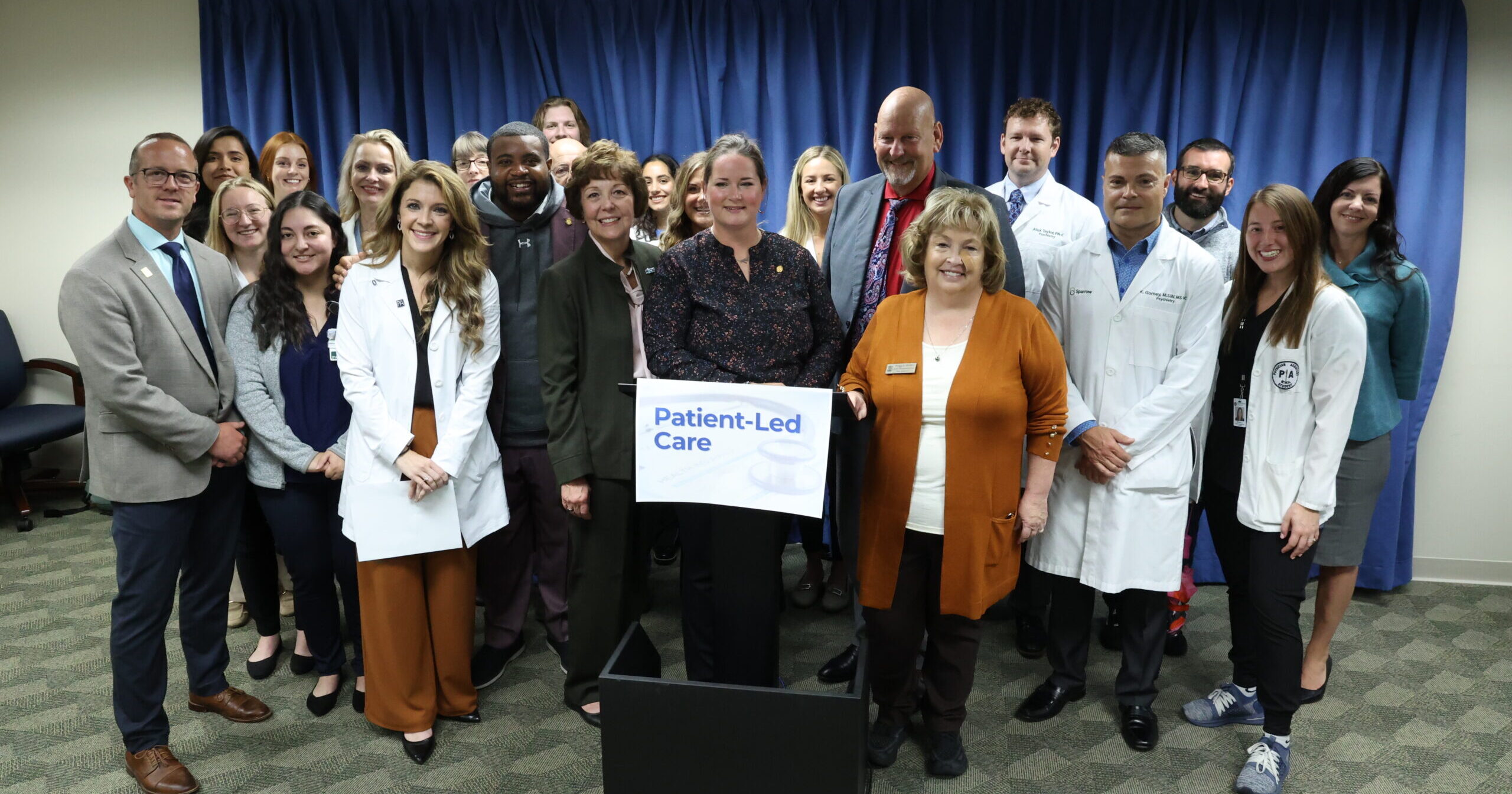Bipartisan legislation benefits patients and providers alike
LANSING, Mich., Oct. 5, 2023 — State Reps. Carrie Rheingans (D-Ann Arbor), Donavan McKinney (D-Detroit), Reggie Miller (D-Van Buren Township) and Curt VanderWall (R-Ludington) hosted a press conference today in support of House Bills 5114-17 to increase Michiganders’ access to vital health care, including both physical and mental health. Physician assistants (PA) are a crucial part of the Michigan health care delivery system. These bills align Michigan PA standards with many other states by removing clinical barriers, improving license mobility, modernizing the PA title, and adding PAs, nurse practitioners (NP) and clinical nurse specialists (CNAs) to Michigan’s Mental Health Code — collectively, these changes will expand mental health access for patients.
The first bill, House Bill 5114, adds PAs to the Mental Health Code. Currently, registered nurses are defined in the code as “mental health providers,” but PAs, NP and CNAs are not, despite each profession receiving behavioral health training. Currently, 3.5 million Michiganders live in Health Profession Shortage Areas, and only 33% of mental health care needs in the state are being met, meaning there is a vacuum that PAs, NPs and CNAs can fill.
“Patient-led care is a huge priority of mine, and I am very excited to introduce this legislation alongside my colleagues from both sides of the aisle. These bills will make a difference in the lives of Michigan patients and the providers they trust,” Rheingans said. “As a social worker, I know firsthand how important mental health is. My bill will expand mental health access for patients by allowing physician assistants, soon to be called physician associates, as well as nurse practitioners and clinical nurse specialists the opportunity to be recognized for the care they already provide.”
House Bill 5115 will allow PAs to delegate like every other licensed health provider. This is particularly important for PAs’ authority to manage the care medical assistants (MA) provide, so PAs are held accountable for high-quality supervision, and physicians can be released from liability when they are not directly supervising an MA.
“These bills make necessary changes that should have happened a long time ago,” McKinney said. “Physician assistants have become an important and prominent part of our health care system, and finding ways to empower them to keep their patients safe is what these bills stand for.”
House Bill 5116 amends the title “physician assistant” to “physician associate,” so their patients better understand their PAs’ skill and training level. The Patient-Led Care package would allow PAs who have more than 6,000 hours of post-graduate clinical experience to provide care consistent with their education, training, experience and competencies. The nomenclature change also gives the professionals the respect they have earned.
“My bill will update these professionals with a title they deserve, physician associate,” Miller said. “After the COVID-19 pandemic, we know all too well what it’s like with not enough patient support. PAs are more than assistants, and patient trust will more quickly be established with a title that fits their worth and their abilities. This legislation will also allow PAs from different states to fill empty positions without obtaining a new license, saving time and money while supporting Michigan’s hospitals and health care system. This altogether manifests in better patient care, helping to end the health care provider shortage.”
The final bill, House Bill 5117, allows a PA licensure to be valid across state lines. Similar to multistate licensing compacts already in place for Michigan physicians and psychologists, this bill would allow PAs to practice in multiple states without the requirement of holding multiple state licenses. Currently, the Ohio Senate has passed a reciprocating bill, and a similar bill is before the Wisconsin legislature.
“Joining the PA licensure compact will be a win for the state,” VanderWall said. “Not only will it clarify our licensing regulations, it will also send a clear message that Michigan is open for business. We want to attract health care professionals to Michigan, and joining this compact will further encourage people to come.”
###

